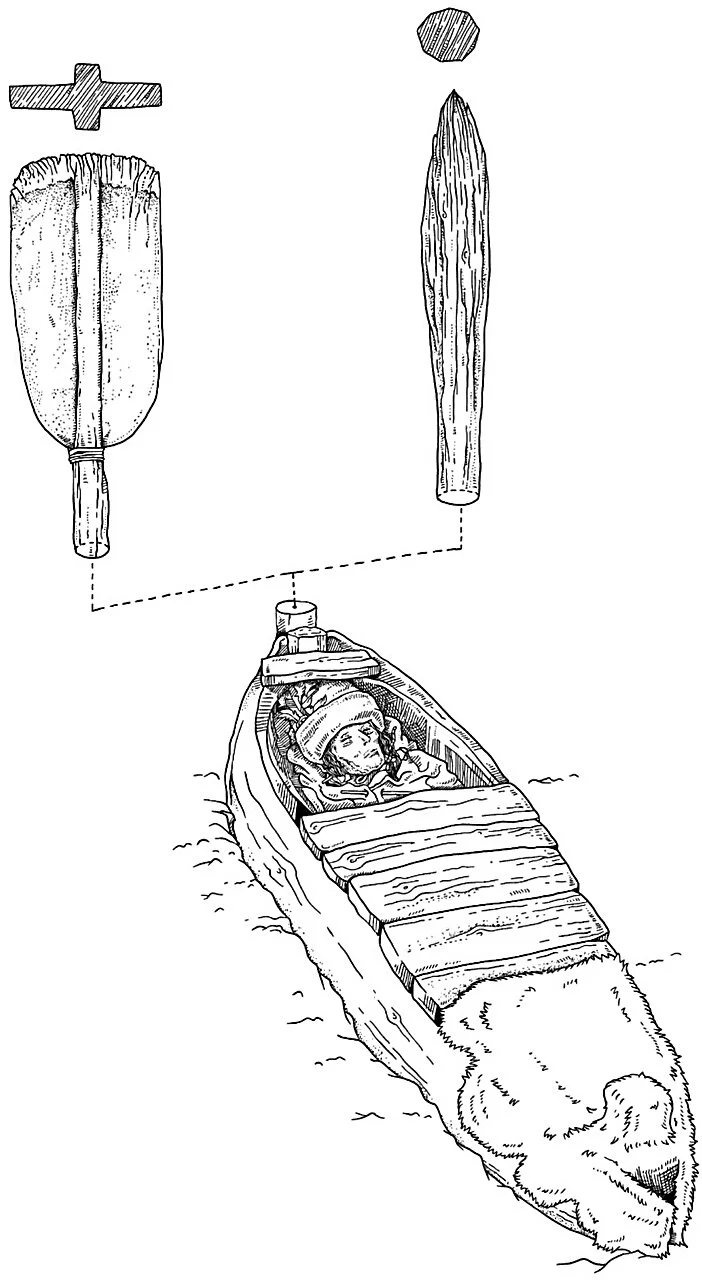Ancient Boat Coffins Unearthed in the Desert Reveal Secrets of a Forgotten Civilization
Muhammad Tuhin
June 14, 2025

An idealized illustration of the Xiaohe burials with two types of posts. Left) Oval shaped end with extrusions. Right) Rounded end without extrusions. Credit: Asian Archaeology (2025). DOI: 10.1007/s41826-025-00105-2
In the heart of China’s parched Tarim Basin, beneath the lifeless sands and blazing skies, lies a story as haunting as it is enigmatic. Wooden boats, buried deep in the desert, cradle the remains of an ancient people—lost to time, yet whispering through their graves. This is the Xiaohe culture, a Bronze Age civilization whose funerary rituals continue to puzzle archaeologists almost 4,000 years after their last burial.
Now, in a striking reappraisal of their symbolic world, Swiss archaeologist Dr. Gino Caspari is reshaping how we interpret these spectral echoes of the past—not just as archaeological data, but as cultural poetry carved in sand, wood, and bone.
Bergman managed to excavate only 12 graves before political tides and logistical difficulties swept further investigation away for nearly 70 years. It wasn’t until the early 2000s that a full excavation resumed under the supervision of the Xinjiang Institute of Archaeology. Their findings were as remarkable as they were perplexing.
More than 167 graves were uncovered—boat-shaped wooden coffins, human remains wrapped in cattle hides, and towering upright poles, some painted in red, others carved into sensuous ovals. Amid these surreal burials, one message seemed clear: the Xiaohe culture held a deep and symbolic connection to water, death, and the animal world. But what it all meant was anyone’s guess.
A Graveyard Like No Other
When Swedish explorer Folke Bergman stumbled across the Xiaohe site in 1934, even he may not have fully grasped the importance of what lay beneath the dust. Near the Lop Nur salt lake in what is now Xinjiang, China, the site contained graves that seemed to float in time—preserved like museum pieces by the hyperarid desert climate.
More:
https://www.sciencenewstoday.org/ancient-boat-coffins-unearthed-in-the-desert-reveal-secrets-of-a-forgotten-civilization
